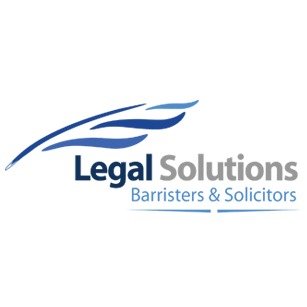Best Land Use & Zoning Lawyers in Launceston
Share your needs with us, get contacted by law firms.
Free. Takes 2 min.
Free Guide to Hiring a Real Estate Lawyer
List of the best lawyers in Launceston, Australia
About Land Use & Zoning Law in Launceston, Australia
Land use and zoning laws in Launceston are designed to regulate the development and usage of land within the city and its surrounding areas. These laws are integral to maintaining the balance between growth and environmental protection, ensuring that the community's needs are met while preserving Launceston's scenic and historical character. Zoning is typically categorized for residential, commercial, industrial, agricultural, and mixed-use purposes. The local council, guided by specific legislative frameworks and planning schemes, manages these regulations.
Why You May Need a Lawyer
There are various circumstances in which individuals or businesses may require legal assistance with land use and zoning issues. Common situations include seeking approval for property development, disputing zoning restrictions, or navigating compliance with existing zoning laws. Lawyers can assist in drafting appeals or objections to local government decisions, negotiating with other landowners, and advising on land acquisition or sales. They can also provide guidance on potential impacts of zoning changes, helping to safeguard investments.
Local Laws Overview
Launceston's zoning laws are governed by the Tasmania Planning Scheme, which sets out regulations for land use planning and development to ensure consistency across the state. Specific local provisions relate to heritage buildings, environmental conservation zones, and commercial and residential area boundaries. The laws aim to enhance liveability and economic opportunity while protecting natural and historic resources. Furthermore, the Launceston City Council has the authority to implement additional planning controls reflecting local priorities and concerns.
Frequently Asked Questions
What is zoning?
Zoning refers to the process by which local governments divide land into areas or zones, each designated for specific uses such as residential, commercial, industrial, etc. This helps manage development and regulate land usage in a balanced way.
How can I find out the zoning designation of my property?
You can determine the zoning designation of your property by contacting the Launceston City Council or using their online mapping tools to view the official zoning maps.
Can I seek a change in zoning for my property?
Yes, property owners can apply for a change in zoning, known as a rezoning application. This process involves submitting a request to the Council, which is then reviewed based on stricter compliance with planning and strategic documents.
What is a planning permit, and do I need one?
A planning permit is an authorization for the development or land use that deviates from existing zoning rules. Whether or not you need one depends on the specifics of your proposed development or land use.
What are potential consequences of violating zoning laws?
Violating zoning laws can result in fines, legal action, and mandatory demolition or alteration of non-compliant structures. It is advisable to seek compliance to avoid these consequences.
How does heritage zoning affect my property?
If your property is within a heritage zone, there are additional rules meant to preserve historic sites. Alterations or development may require special permits to ensure they align with heritage preservation goals.
What are building overlays?
Overlays are additional planning controls applied to areas within existing zones, addressing specific community issues such as flood risk, heritage conservation, or vegetation protection, and may impose extra requirements on development.
Are there restrictions on commercial activities in residential zones?
Yes, commercial activities in residential zones are restricted and often require special permits or rezoning to ensure the residential character of the area is maintained.
How can zoning laws affect real estate investment?
Zoning laws impact property values, development potential, and permissible uses, making them a critical factor in real estate investment decisions. Investors should consult zoning maps and regulations to assess potential risks and opportunities.
What are mixed-use zones?
Mixed-use zones are areas that allow for a combination of residential, commercial, and sometimes industrial uses. This zoning is intended to encourage development that promotes community interaction and liveability.
Additional Resources
Those seeking further information on land use and zoning in Launceston can refer to the following resources:
- Launceston City Council - Engage with local planners and access maps, guides, and permit applications.
- Tasmania Planning Commission - Learn about regional strategies and statewide planning policies.
- Community Legal Centres - Obtain free legal advice and support for community members.
- Real Estate Institutes and Professionals - Consult with local real estate experts for property-specific insights.
Next Steps
If you need legal assistance with land use and zoning issues, consider the following steps:
- Contact a local attorney specializing in land use and zoning to discuss your concerns and receive expert guidance.
- Gather relevant documentation, including property records, zoning maps, and correspondence with the local council, for review by your lawyer.
- Determine whether you need to file any applications, permits, or legal objections, and work with your lawyer to ensure these are correctly prepared and submitted.
- Attend council meetings or hearings related to zoning changes, ensuring you are informed and have a voice in the process.
Lawzana helps you find the best lawyers and law firms in Launceston through a curated and pre-screened list of qualified legal professionals. Our platform offers rankings and detailed profiles of attorneys and law firms, allowing you to compare based on practice areas, including Land Use & Zoning, experience, and client feedback.
Each profile includes a description of the firm's areas of practice, client reviews, team members and partners, year of establishment, spoken languages, office locations, contact information, social media presence, and any published articles or resources. Most firms on our platform speak English and are experienced in both local and international legal matters.
Get a quote from top-rated law firms in Launceston, Australia — quickly, securely, and without unnecessary hassle.
Disclaimer:
The information provided on this page is for general informational purposes only and does not constitute legal advice. While we strive to ensure the accuracy and relevance of the content, legal information may change over time, and interpretations of the law can vary. You should always consult with a qualified legal professional for advice specific to your situation.
We disclaim all liability for actions taken or not taken based on the content of this page. If you believe any information is incorrect or outdated, please contact us, and we will review and update it where appropriate.









